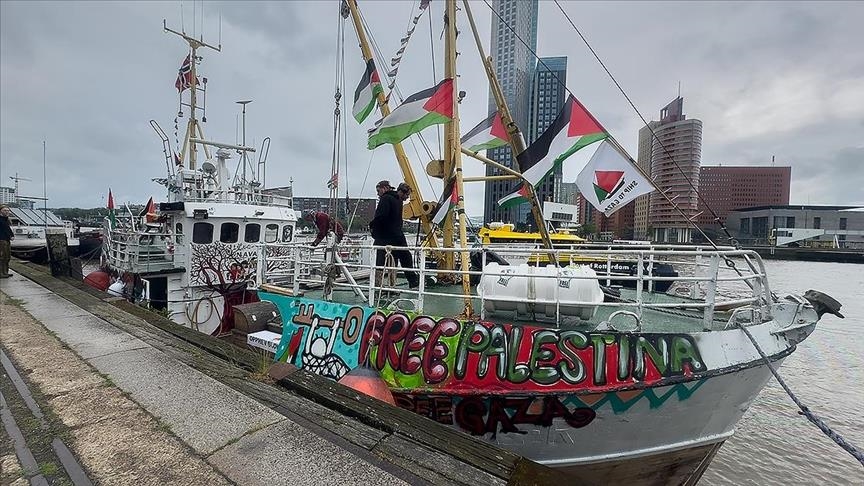Cyprus quagmire haunts AKP
In meetings with European counterparts, Foreign Ministry executives at all levels have been stressing that while the ruling Justice and Development Party (AKP) government has been acknowledging existence of some sincere efforts for ending the isolation of northern Cyprus, patience was running out and serious doubts have started to emerge whether Turkey was subjected to a stalling tactic.
In a marked shift from Turkey’s traditional Cyprus policy and despite veteran Turkish Cypriot leader Rauf Denktas’s opposition, the ruling AKP supported a U.N. settlement plan and allied with the then-pro-settlement opposition in northern Cyprus. The U.N. plan received an overwhelming approval vote in northern Cyprus in twin referenda held on April 24, but the plan faltered because of a massive 75 percent rejection vote by Greek Cypriots.
The AKP government was accused by Denktas at the time of acting with the interests of Turkey but those interests were not serving the Turkish Cypriot state. The AKP government was hoping that even if a Cyprus deal would not be attained a Turkish Cypriot overwhelming "yes" vote would eradicate the Cyprus trump card in front of Turkey’s EU bid. In other words, Turkey was abandoning the Turkish Cypriot state in hopes that it would not obstruct Ankara’s EU bid.
Now, weeks before the release of the Commission report which would be of vital importance when the EU leaders meet on December 17 for a decision on Turkey, the AKP government has started to come under intense pressure that it should enter into a customs union deal with EU-member the "Republic of Cyprus" — the Greek Cypriot administration recognized internationally as the sole government of the eastern Mediterranean island.
Meeting behind closed doors for 2.5 hours with Turkish Cypriot Prime Minister Mehmet Ali Talat on August 14 Prime Minister Recep Tayyip Erdogan and in a five-hour long discussion on August 18 in Ankara with Talat and Foreign Minister Serdar Denktas — the son of President Denktas — Foreign Minister Abdullah Gul went into pains in trying to explain that the AKP government has decided to handle a customs union deal with the Greek Cypriot state separate from efforts aimed at bringing a settlement to the Cyprus problem.
While no "consensus" was reportedly reached at the Erdogan-Talat meeting, the Ankara meeting however did produce a concord.
His Turkish Cypriot guests reportedly warned him that if Ankara proceeded along such a road and entered into a customs union deal with the Greek Cypriot administration, such a development would mean recognition of its claim to be the "sole legitimate government for the entire island." Despite such a warning and a veiled threat that "history will take all of us responsible for such a move by Turkey" Gul reportedly convinced Talat and Denktas Jr. on the new approach of the Turkish government for the sake of not giving back to the EU the Cyprus trump card "as Turkey passes through such a sensitive period in its EU accession process."
Still, according to well-placed sources, Gul pledged to Talat and Denktas Jr. that if the EU did not move towards ending the isolation of the north, if Ankara continued to be pressured with European Human Rights Court cases by Greek Cypriots demanding compensation for their pre-1974 property in northern Cyprus, Ankara "may take all the risks required."



